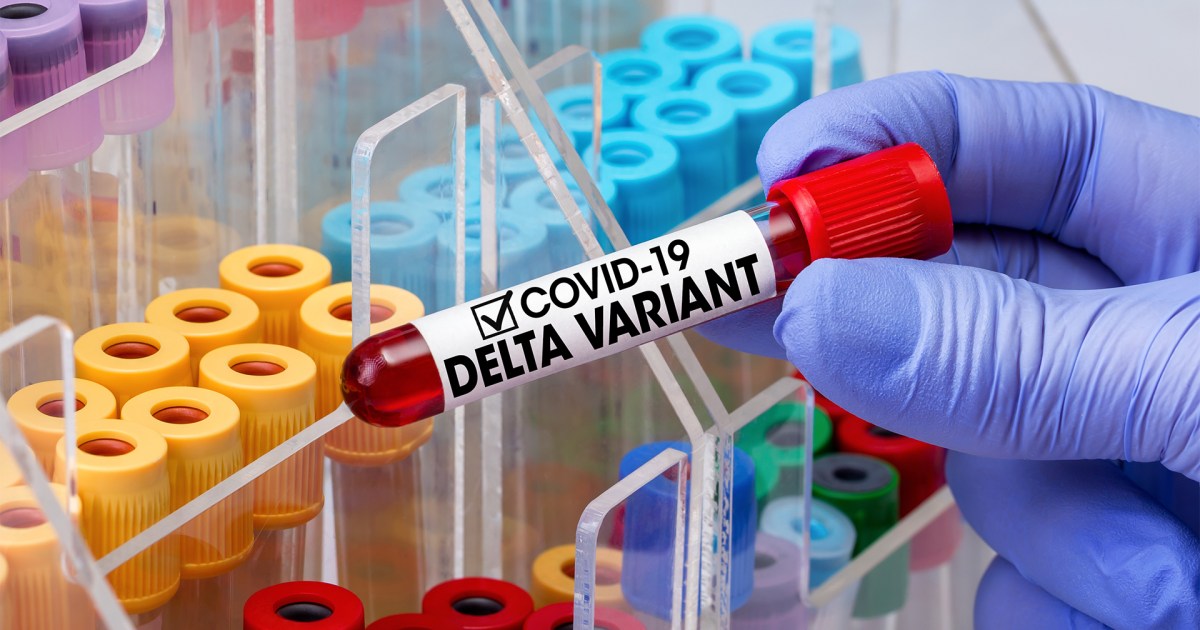Writer Jason Gale says in a report published by the American "Bloomberg" website, that it is not yet clear whether what is known as herd immunity is possible soon, even in countries that have seen a high percentage of the population vaccinated with highly effective vaccines.
Can COVID-19 be eradicated?
The writer confirms that the answer is no. Until now, only one human disease has been completely eradicated, which is smallpox, that is, the number of cases reached zero and remained so for a long time without continuous countermeasures to ensure that it does not spread again.
This was thanks to an effective vaccine, as well as the fact that humans are the only mammals naturally susceptible to infection with the smallpox virus.
With regard to the emerging corona virus, some countries - such as New Zealand - have reached zero new cases for long periods thanks to closures, detection of cases, isolation and border closures.
But maintaining this in the long-term is a difficult challenge, because the emergence of more prevalent strains leads to stricter health and social measures, with people wanting to return to a normal life.
Will Vaccines Kill COVID-19?
There is a great deal of uncertainty about the effectiveness of vaccines, and one scientific paper asserts that if a vaccine provides complete life-long protection against infection with SARS-CoV-2, we would need to vaccinate 60-72% of people to achieve herd immunity.
But if the vaccine is only 80% effective in preventing infection, we need to vaccinate 75% to 90% of people, which is a high rate.
The writer adds that it has been proven that the Covid-19 vaccines currently used provide protection between 50% and 97% of infection with the disease, but it is often not known how successful they are in protecting against transmission of infection from one person to another.
An unpublished study conducted by researchers from the company "Pfizer", which followed a number of volunteers who received the vaccine for up to 6 months, concluded a gradual decline in the effectiveness of the vaccine against symptomatic infection, but they found that the Pfizer vaccine remained "extremely effective" in general.
How do new strains affect?
The greater the spread of the Corona virus, the greater the chance that it will mutate in ways that enhance its ability to resist the immunity acquired by the people who receive the vaccine.
Over the past year, such strains have spread globally, leading to a spike in new cases and hospital admissions.
Studies in the United Kingdom have shown that the delta mutant is more resistant to vaccines than the alpha mutant that appeared in England in late 2020, especially in people who received two doses of the vaccine.
This means - according to the author - that a higher proportion of people must be vaccinated to reach herd immunity.
Scientists say vaccines will continue to work to stop the development of more serious cases, but some vaccines may be less effective in protecting against mild symptoms.
This may require periodic updating of vaccines to maintain their effectiveness, and this is what makes several countries plan to release additional or “booster” doses, although the World Health Organization called for suspending this process until the end of next September at least to enable poor countries to catch up Kneeling in terms of vaccination rates.
Why is the delta mutant considered the most dangerous?
Vaccines have been shown to reduce the concentration of virus particles - or viral loads - within the airways of infected people, reducing the likelihood of transmitting the infection to others.
However, the delta mutate is associated with viral loads more than 1,200 times that of the original emerging coronavirus strain, which makes it more prevalent.
Perhaps this explains the large outbreak of the epidemic in several regions of the world, and the US Centers for Disease Control and Prevention recently recommended wearing masks again.
The New York Times reported in late July that the Delta strain is more able to undermine the immunity conferred by the vaccine, and that it causes more severe symptoms than all other forms of the virus.
Should COVID-19 vaccines prevent infection to limit the spread of the virus?
Vaccines do not have to be perfect for a general benefit, but the new generation of vaccines is expected to be better at preventing transmission.
Mike Ryan, head of the WHO's Emergencies Programme, suggests that rather than focus on eradicating the disease, it is better to "reduce the ability of the virus to kill its patients, reduce hospital admissions, and reduce the destruction of our economic and social lives."
What if we can't eliminate COVID-19?
In a poll conducted by Nature last January of more than 100 scientists, nearly 90% said they expect COVID-19 to become an endemic virus.
Endemic viruses circulate continuously, often causing periodic mutations when conditions are favorable for transmission.
What are the future consequences?
People who have survived COVID-19 and have been vaccinated against it are likely to have a degree of immunity for some time.
Researchers in the UK say that it is possible - as immunity gradually diminishes - that more vaccinated individuals will become infected, but the immune system will quickly control the virus and prevent severe symptoms from developing.
Some scientists speculate that once the endemic stage is reached, initial exposure to the virus will occur in childhood, and infection often causes mild disease or may not cause any symptoms.
At that point, COVID-19 will largely be seen as just a cold.

